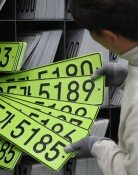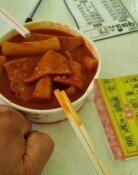What the success of movie Ode to My Father means to Koreans
What the success of movie Ode to My Father means to Koreans
Posted January. 14, 2015 07:17,
"Ode to My Father (also known as Kukje Market in Korean)" directed by Yoon Je-kyoon is set to become the 11th Korean movie that garners more than 10 million viewers. Great popularity of this melodrama movie has made Yoon the first Korean movie director who produced two "10 million club movies," following "Haeundae" in 2009. While great numbers of middle-aged and older generations from their 40s to 70s visited theater, the movie has unexpectedly drawn younger generations and succeeded in pulling both young and old moviegoers.
"Ode to My Father," which is the first domestic movie to draw 10 million viewers this year, traces life of a father who has sacrificed for family while living through difficulties in the modern history of Korea after the Korean War in 1950. Life of the lead character Deok-su (played by Hwang Jeong-min), who gave up his own dream and lived a life full of commitment for his family, pulled heartstrings of many viewers.
The movie heros lines, such as We were born in difficult days. I believe it was fortunate that we had gone through such hardships, not passing the burden to our children, or Father, I lived a good life. But it was full of difficulties to me, became buzzword. Many moviegoers were moved to tears by the scene where Deok-su meets with his youngest sister, who got lost and departed from the family during Heungnam Evacuation of 1950, in the reunion event of families separated by the Korean War.
Major scenes in the movie including Heungnam Evacuation, dispatched miners and nurses to West Germany, engineering technicians sent to the war-torn Vietnam, and the reunion of separated families are all significant events that hold importance in the modern history of Korea. The lead characters life, going through waves of difficulties to support his family in the least-developed country at that time, 50 years ago, has drawn sympathy from the generation who lived out those days and the youth who never knew about such history. Some of half-learned critics belittled the movie, saying (It makes me) vomit or Ultra-right movie, but such critics only caused strong backlash.
"Ode to My Father" itself has nothing to do with politics or ideology. But industry insiders analyze that sensational success of the movie would bring about great repercussions to the domestic movie industry where the leftist literature has been so powerful and influential. So far, anti-America and anti-government codes have almost dominated movies about modern Korean historic events and many believed that such movies can make a box office hit. However, the movie that depicts lives of grandparents, fathers and mothers who toiled sweat and blood to achieve industrialization and feed families in the war-ravaged and poverty-stricken land has become a great success in the box office. Storm of the movie "Ode to My Father" will contribute to strike ideological balance and secure cultural diversity in the domestic movie industry.
Headline News
- N. Korea launches cyberattacks on S. Korea's defense companies
- Major university hospital professors consider a day off each week
- Italy suffers from fiscal deficits from ‘Super Bonus’ scheme
- Inter Milan secures 20th Serie A title, surpassing AC Milan
- Ruling and opposition prioritize spending amid tax revenue shortfalls







